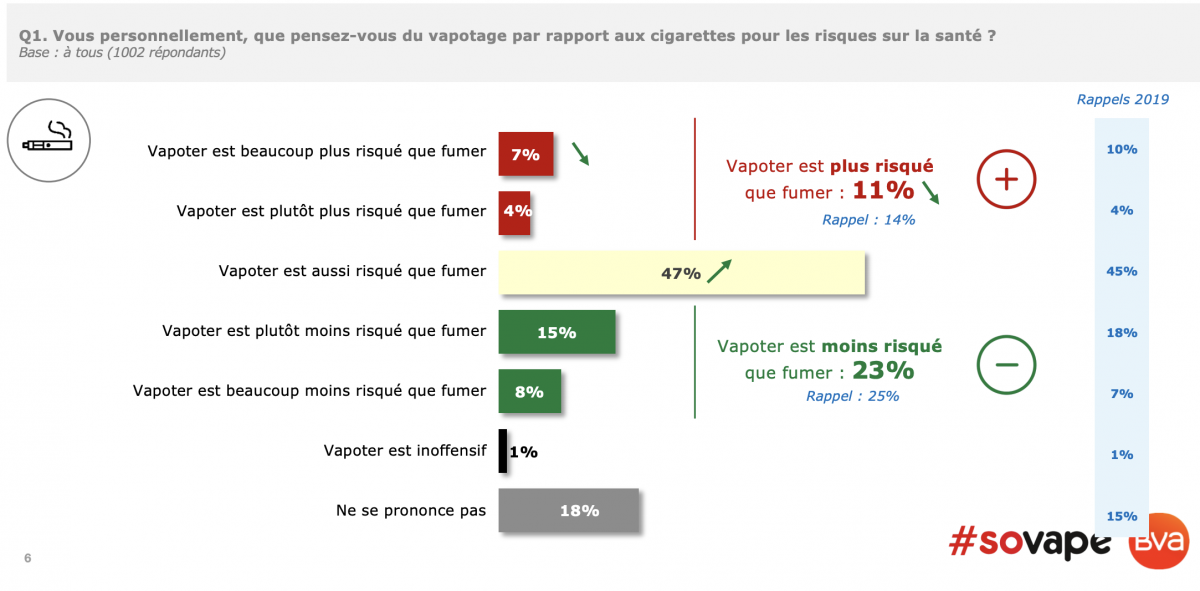In March, a collection of experts and advocates sent a letter to The Lancet. It was in response to an editorial attacking vaping which included multiple examples of errors and misdirection.
Such coverage, they said, does “a major disservice to evidence-based public health.”
“Equating the dangers of vaping with those of smoking ignores dozens of studies that show substantial differences in the risks associated with cigarette and e-cigarette use. The evidence of efficacy of e-cigarettes in helping smokers quit is not weak; the results of a randomised controlled trial have shown two times higher quit rates by people using e-cigarettes than in people using medicinal nicotine replacement therapy, confirming similar findings from population data. E-cigarettes have an important role to play in preventing death and disability from tobacco use, and, while remaining vigilant over potential adverse effects is vital, the effect on public health of denying smokers the choice to use e-cigarettes could be devastating.”
Publishing nonsense fuels confusion and false beliefs in the public, as evidenced by last year’s survey conducted by SOVAPE. It discovered one in two French (51%) considered vaping as much, or even more harmful than cigarettes, a feeling that increased by 10% between 2014 and 2017.
And it keeps getting worse.
Commenting on their latest study, SOVAPE says: “The results of the new BVA-SOVAPE survey show that most French people still have misperceptions about the risks of vaping and nicotine. Without an information campaign, this situation, which is detrimental to smoking cessation, has not changed since 2019.”

According to the new survey conducted in early September 2020 by BVA:
- Only 8% of French people know that vaping is much less risky than smoking (compared to 7% in 2019 - 1%)
- Only 23% think it is little or much less risky (compared to 25% in 2019 - 2%)
- 58% think vaping is as much or more risky than smoking (compared to 59% in 2019 - 1%)
- 18% admit they don't know (compared to 15% in 2019 - 3%)
- On a cumulative basis, 75% of French people are still wrong about the risks of vaping compared to those of smoking
Now 78% of French people think nicotine is carcinogenic, yet nicotine is not a proven carcinogen for humans.
"It is important that appropriate information legitimizes the use of nicotine, the first active ingredient in smoking cessation replacement devices," Said Antoine Deutsch of the National Cancer Institute (INCa) at the Vape Summit in October 2019.
Benoit Vallet, Professor at the School of Public Affairs, SciencesPo Paris, commented: “This ‘misperception’ of the French, reiterated this year, deserves today strong investments in prevention messages on the part of our national agency, but also research efforts in the humanities and social sciences to better understand this ignorance and how it is maintained.”
Professor Jean-François Etter, University of Geneva, said that these misperceptions have public health implications: “Fewer smokers give up smoking to switch to low-risk products. Correcting these misperceptions will require a long-term effort, which will include information to the public and professionals (health, journalists, policy makers, etc.), and training of health professionals in particular, and the allocation of necessary resources.”
Related:
- SOVAPE – [link]
- The French Are Misinformed, Planet of the Vapes, 2019 – [link]
- Scaremongering Called Out, Planet of the Vapes, 2020 – [link]
Photo Credit:
Image by ErikaWittlieb from Pixabay
Image by Arek Socha from Pixabay
Table from SOVAPE – [link]
Dave Cross
Journalist at POTVDave is a freelance writer; with articles on music, motorbikes, football, pop-science, vaping and tobacco harm reduction in Sounds, Melody Maker, UBG, AWoL, Bike, When Saturday Comes, Vape News Magazine, and syndicated across the Johnston Press group. He was published in an anthology of “Greatest Football Writing”, but still believes this was a mistake. Dave contributes sketches to comedy shows and used to co-host a radio sketch show. He’s worked with numerous start-ups to develop content for their websites.
Join the discussion
Harm Reduction For The Rich
The United Kingdom risks becoming a harm reduction country only for the wealthy, according to Michael Landl of the World Vapers’ Alliance
CAPHRA Highlights Tobacco Control Flaws
The Coalition of Asia Pacific Tobacco Harm Reduction Advocates highlights the flaws in tobacco control which has led to the rise of black market in Australia
A Missed Opportunity at COP10
The Smoke Free Sweden movement says that COP10 was a missed opportunity to save millions of lives
COP10: Promote Tobacco Harm Reduction
Experts with Smoke Free Sweden are emphasising the urgent need for a Tobacco Harm Reduction approach at COP10






-listing400.jpg)




